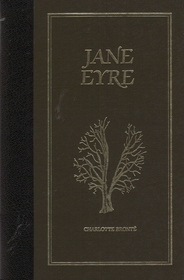“My world had for some years been in Lowood: my experience had been of its rules and systems; now I remembered that the real world was wide, and that a varied field of hopes and fears, of sensations and excitements, awaited those who had courage to go forth into its expanse, to seek real knowledge of life amidst its perils.” –Jane Eyre
How often we turn a corner in our lives and suddenly find ourselves in a place where we feel off balance. For me, it’s like crossing a river by jumping stone to stone and suddenly landing on an unstable one, then wavering momentarily in the vertigo-inducing inbetween, before either falling and getting doused (if, hopefully, the current is gentle and the waters shallow) or continuing on. This feeling, in my experience, generally accompanies big life changes—break ups, deaths, births, coming home. I’m there now, still stuck in that place of weightlessness, unsure of how to regain my balance and move forward.
For now, I cling to the small pleasures.
Last week, I did the dinner for Jane Eyre as a celebration of my mother’s birthday, as it is her favorite book. For two days, I prepared and cooked and fell peacefully into that brilliant and noiseless place in my head where I go while doing something I enjoy. Some of her oldest friends came to share the meal with us, most of whom I’ve grown up with, providing an extended family that Jane Eyre could only have dreamed of. The dinner was full of laughter and warmth and shared histories. I rarely manage to take pictures of the actual event itself, as I’d often rather enjoy myself and the fruits of my efforts, but I think the photos of the process tell their own story.
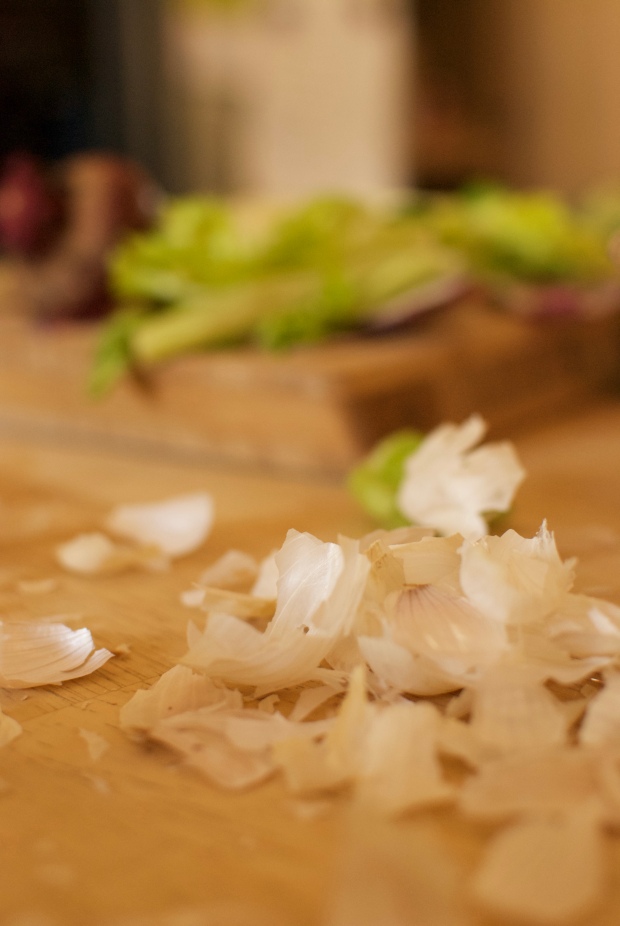
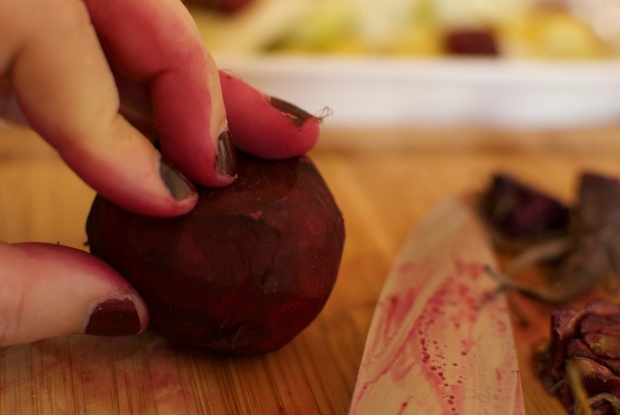
Preparations for the vegetable stock that would later become the soup.
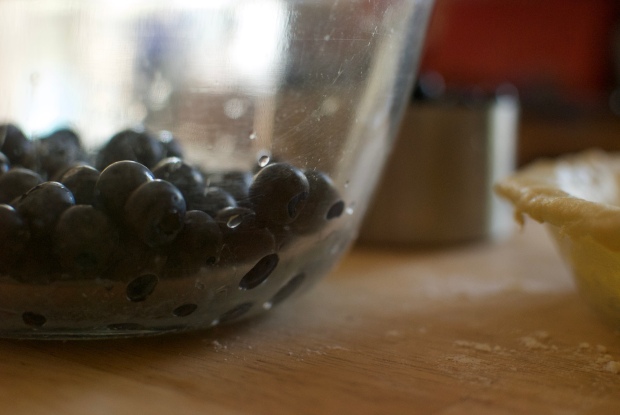
- The makings of a Sweet Blueberry Buttermilk Pie with Chamomile Cream: Recipe from Half Baked Harvest
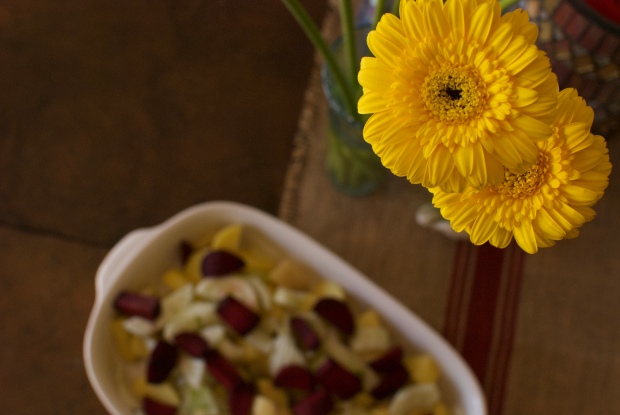
Roast Chicken & Vegetables (Chicken not shown)
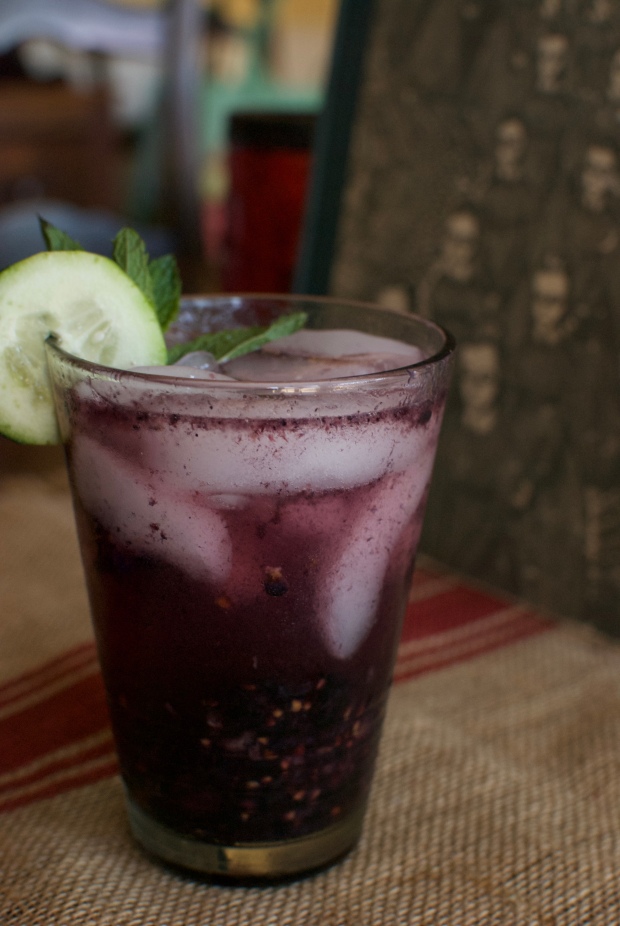
Blackberry, Mint, and Cucumber Gin Spritzer: Recipe from The Broken Bread
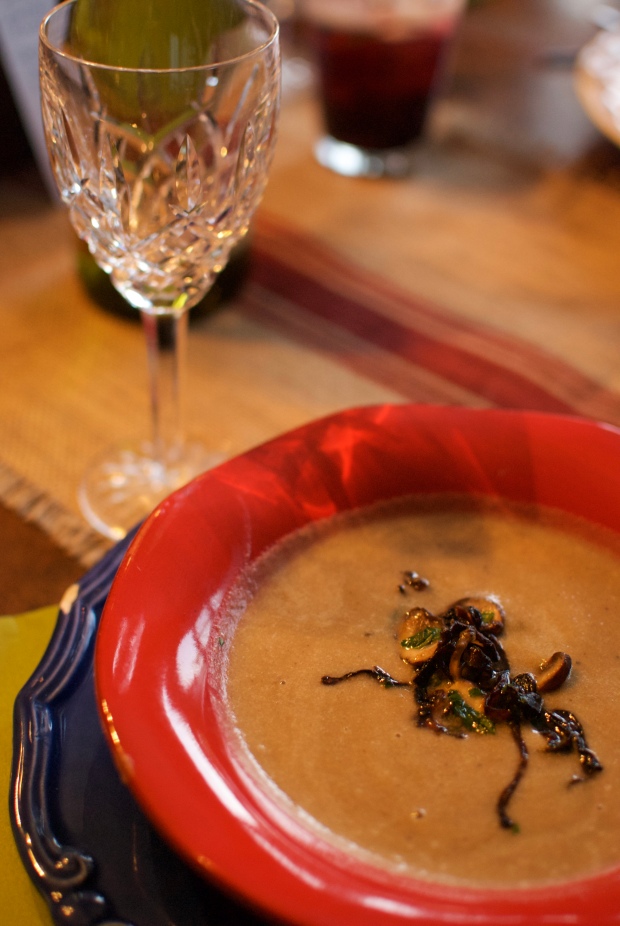
Roasted Cauliflower and Garlic Soup with Caramelized Onions: Recipe from Brooklyn Supper
Jane Eyre knew the feeling of coming to terms with the turns of life well. Once she left Lowood to be the governess at Thornfield Hall, she would’ve had to reestablish her sense of self in a vastly different environment, where different things were expected of her. As for me, I’m trying. I’m looking for a way to do the things I want to do, the things I need to do, and moreover regaining that sense of joy I felt so often in Ecuador, where for a while I felt that I was using my strengths and interests as tools for shaping the life I wanted.
I know that coming home was still a step towards the life I want, but the path ahead is unclear and branches in many directions. It took courage to buy a one-way ticket to Ecuador, as I well know and as everyone tells me. But it takes a different kind of courage to have the strength and resilience to pull the life you want out of the miasma of the daily struggle.
Until I choose a path and start walking, towards that mythical marriage of life ($1,000 a month on a barista’s paycheck does not quite count) and passion, I will cling to this blog which, in a way, is a micro version of just that.
